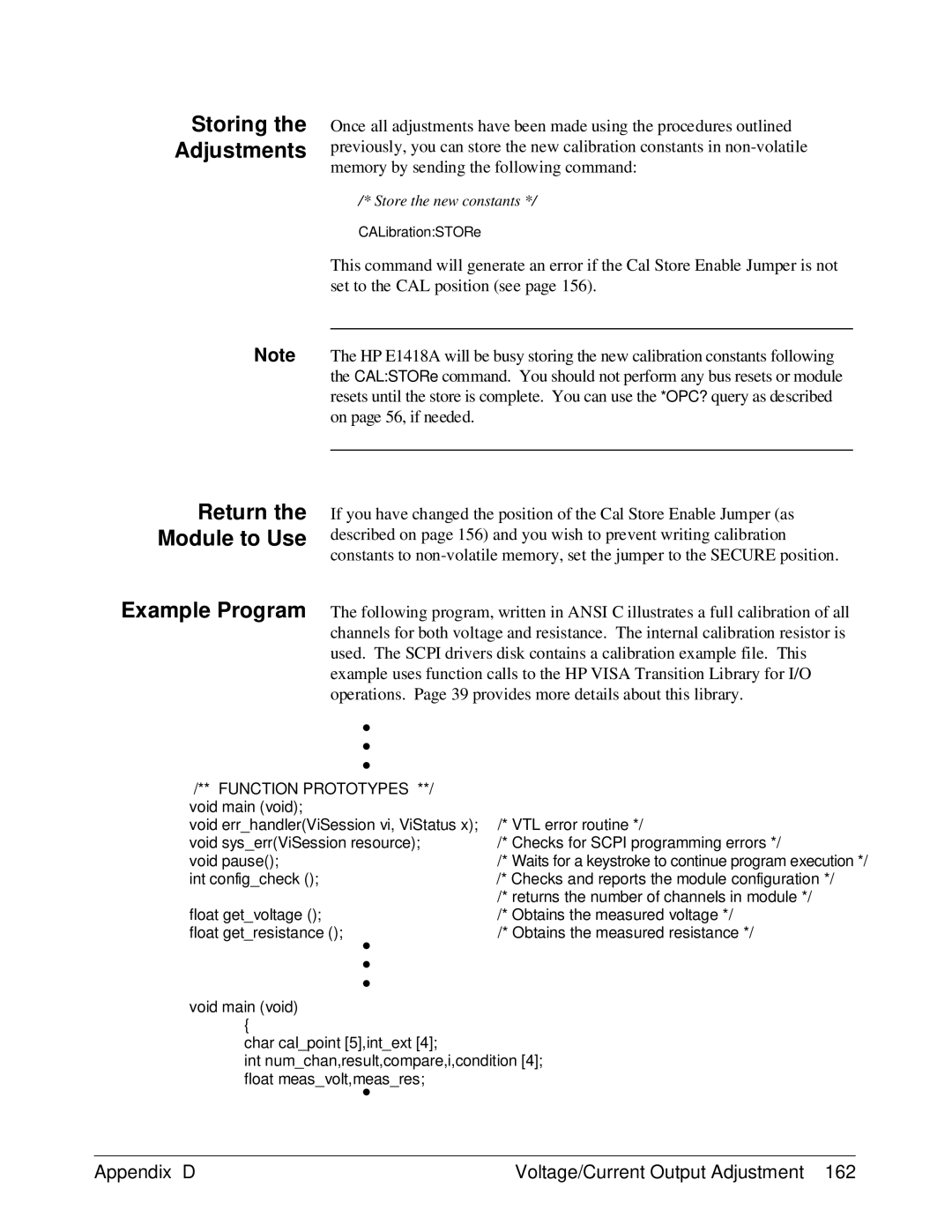
Storing the
Adjustments
Note
Return the Module to Use
Example Program
Once all adjustments have been made using the procedures outlined previously, you can store the new calibration constants in
/* Store the new constants */
CALibration:STORe
This command will generate an error if the Cal Store Enable Jumper is not set to the CAL position (see page 156).
The HP E1418A will be busy storing the new calibration constants following the CAL:STORe command. You should not perform any bus resets or module resets until the store is complete. You can use the *OPC? query as described on page 56, if needed.
If you have changed the position of the Cal Store Enable Jumper (as described on page 156) and you wish to prevent writing calibration constants to
The following program, written in ANSI C illustrates a full calibration of all channels for both voltage and resistance. The internal calibration resistor is used. The SCPI drivers disk contains a calibration example file. This example uses function calls to the HP VISA Transition Library for I/O operations. Page 39 provides more details about this library.
∙
∙
∙
/** FUNCTION PROTOTYPES **/ |
| |
void main (void); |
|
|
void err_handler(ViSession vi, ViStatus x); | /* VTL error routine */ | |
void sys_err(ViSession resource); | /* Checks for SCPI programming errors */ | |
void pause(); |
| /* Waits for a keystroke to continue program execution */ |
int config_check (); |
| /* Checks and reports the module configuration */ |
|
| /* returns the number of channels in module */ |
float get_voltage (); |
| /* Obtains the measured voltage */ |
float get_resistance (); | ∙ | /* Obtains the measured resistance */ |
|
| |
| ∙ |
|
∙
void main (void)
{
char cal_point [5],int_ext [4];
int num_chan,result,compare,i,condition [4];
float meas_volt,meas_res;
∙
Appendix D | Voltage/Current Output Adjustment 162 |
